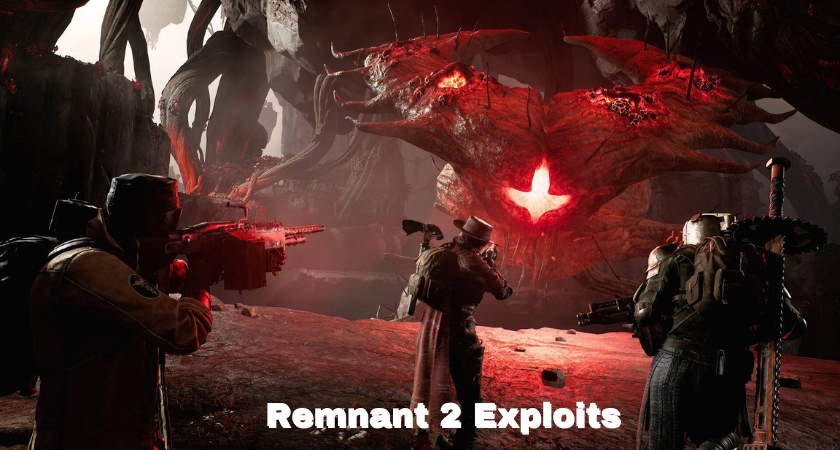Table of Contents
Navigate the ethical quandaries of Remnant 2 exploits in this insightful article. Explore their impact on gameplay, competitive advantages, and the future of survival games.
The dust has barely settled on the release of Remnant 2 Exploits, yet the game’s online communities are already ablaze with controversy. At the heart of the storm lies the discovery of several game-breaking exploits, each offering players an unfair advantage in the unforgiving world of Remnant. This article delves into the ethical quagmire surrounding these exploits, analyzes their potential impact on Remnant’s competitive landscape, and ponders the broader implications for the future of survival games.
What is Remnant 2 Exploits?
Remnant 2 Exploits refers to various methods in the video game Remnant: From the Ashes that allow players to gain an unfair advantage or bypass intended challenges. This can include glitches, bugs, or deliberate strategies using in-game mechanics in unintended ways. Examples might involve gaining infinite resources, becoming invincible, or cheesing bosses through environmental manipulation. While some exploits can be seen as harmless shortcuts, others can significantly disrupt the intended game balance and break the immersion for other players. Developers typically patch out exploits over time, so their effectiveness and lifespan can vary.
Read more here: Inter Milan vs FC Porto Timeline

Exploits 101: Bending the Rules or Shattering the Experience?
Remnant 2’s exploits range from clipping through walls to accessing hidden areas to duplicating valuable resources with infinite ease. While some exploits offer minor benefits like skipping tedious backtracking, others grant users outright invincibility or the ability to one-shot bosses. The severity of these exploits lies not just in their immediate impact on individual gameplay, but also in their potential to erode the core principles of challenge and fair competition that underpin the Remnant series.
Ethical Minefield: Walking the Tightrope of Fun and Fairness
Using exploits presents a complex ethical dilemma for players. On the one hand, the allure of bypassing grueling challenges and achieving near-godlike power is undeniable. Who wouldn’t be tempted to shortcut the grind and experience the thrill of dominating enemies previously deemed insurmountable? Furthermore, the argument can be made that exploiting developer oversights falls within the bounds of player agency, a core tenet of open-world games.
Nevertheless, this line of thought neglects to ponder the wider implications of exploiting. When a substantial segment of players resorts to exploits for success, it diminishes the feeling of achievement for those who endure using legitimate methods. The competitive fairness of leaderboards and PvP modes gets tarnished, deterring authentic skill advancement and nurturing a culture that prioritizes shortcuts over persistence. In essence, unchecked exploit usage threatens to transform Remnant 2 from a challenging test of player resilience into a playground for diejenigen who game the system.
Competitive Fallout: Exploits as the New Meta?
The competitive landscape of Remnant 2 now faces a precarious balancing act. On the one hand, developers must swiftly address these exploits to restore fairness and uphold the competitive integrity of the game. Addressing issues may require deploying hotfixes, enforcing more stringent anti-cheat protocols, or adjusting game mechanics to eliminate exploits. Yet, forceful interventions pose the risk of distancing players who might interpret these measures as unjust limitations on their ability to freely explore and experiment within the game environment.
The question then arises: how can developers combat exploits without stifling player creativity and innovation? One potential solution lies in embracing player feedback and working collaboratively to identify and patch exploits while simultaneously exploring alternative design approaches that reward skillful play without resorting to game-breaking shortcuts. Ultimately, fostering a community-driven approach to balancing and ethical gameplay may prove the most sustainable solution in the long run.
Beyond Remnant: A Broader Look at Survival Game Design
The Remnant 2 exploit controversy serves as a microcosm of a larger issue facing the survival game genre as a whole. The inherent tension between player agency and game balance in open-world experiences presents a constant challenge for developers. Striking the right balance between offering players the freedom to experiment and exploit while ensuring a fair and engaging competitive environment is crucial for the long-term success of any survival game.
Looking forward, developers can learn valuable lessons from the Remnant 2 exploit saga. Prioritizing robust testing procedures, incorporating community feedback into development cycles, and designing game mechanics that incentivize skillful play over shortcut-seeking behavior are all crucial steps in creating a fairer and more engaging survival game experience. Ultimately, fostering a culture of ethical gameplay within the community itself, where players strive for mastery through legitimate means, may be the most effective defense against the allure of exploits and the erosion of competitive integrity.
Final Answer
The Remnant 2 exploit controversy stands as a stark reminder of the ethical tightrope walked by both players and developers in the realm of open-world survival games. Addressing the current task involves addressing vulnerabilities and reinstating equilibrium in Remnant 2. However, the wider consequences for the genre’s future are extensive. Emphasizing ethical gaming, promoting player autonomy while maintaining fairness, and fostering a cooperative game design approach can guarantee that survival games persist in delivering an exhilarating mix of challenge, liberty, and competition that resonates globally with players.
People Also Ask
How do you get easy scrap in Remnant 2?
Explore dungeons, defeat enemies, and dismantle unwanted gear to quickly accumulate scrap in Remnant 2.
How difficult is Remnant 2?
Remnant 2’s difficulty varies, offering a challenging experience with adaptive enemies and bosses, ensuring players of all skill levels find engaging gameplay.
Can you scrap weapons in Remnant 2?
Yes, in Remnant 2, you can scrap weapons by using crafting stations. Dismantling unwanted weapons provides valuable resources for upgrades and crafting new gear.





